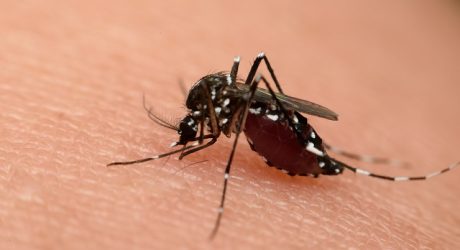The Zika virus isn’t going anywhere anytime soon, according to experts. They say the epidemic is likely to continue for another two to three years, and in a worst-case scenario could become endemic in Latin America.
Scientists from the Medical Research Council Centre for Outbreak Analysis and Modelling at Imperial College London believe the epidemic will end only when the population reaches a stage of “herd immunity,” when there are no longer enough uninfected people for transmission of the virus to be sustained.
Once this stage is reached, there would be a long period with few new cases until the emergence of a new generation who had not been exposed to Zika, the researchers said in the journal Science.
Using data modelling, the scientists predicted that the next outbreak would take place in around 10 years’ time. And they said slowing the spread of the virus would simply delay the point at which it fizzled out naturally.
Earlier this year, the World Health Organization (WHO) declared the Zika virus a global public health emergency, largely because of the risk to newborns.
Zika infection is generally mild, with most people experiencing few, if any, symptoms. But it is known to cause microcephaly, a severe birth defect in which babies are born with abnormally small heads and brain damage.
Despite concerns from leading scientists, the Olympic Games are going ahead next month in Brazil, where the current outbreak that began last year continues to rage.
Outbreak not containable
Brazilian health workers have tried to target the Aedes aegypti mosquito which transmits Zika. But the research paper said the outbreak was not “containable” and targeting the mosquito would have limited impact.
Professor Neil Ferguson, lead author of the research, said any efforts to slow the spread of the virus could actually prolong the current epidemic. In a worst-case scenario, he said, the virus could become endemic.
“Slowing transmission between people means the population will take longer to reach the level of herd immunity needed for transmission to stop,” he explained.
“It might also mean that the window between epidemics could actually get shorter.”
Professor Ferguson acknowledged there were still many unanswered questions about Zika which could affect predictions.
The virus could become endemic in Latin America which would result in smaller, frequent outbreaks, for example, and he said no-one yet understood why Latin America was particularly affected.
“One possibility is climate may have in some way aided spread of the virus, as spread coincided with an El Nino event,” he suggested.
“Genetic mutation of the virus might also have played a role, although early data currently give limited support for this hypothesis.”
Ferguson also speculated that previous exposure to Dengue fever might heighten the Zika infection in an individual, as recent studies had suggested.
Read more: http://www.caribbean360.com/news/zika-epidemic-last-years-become-endemic#ixzz4ExGSn6BP














